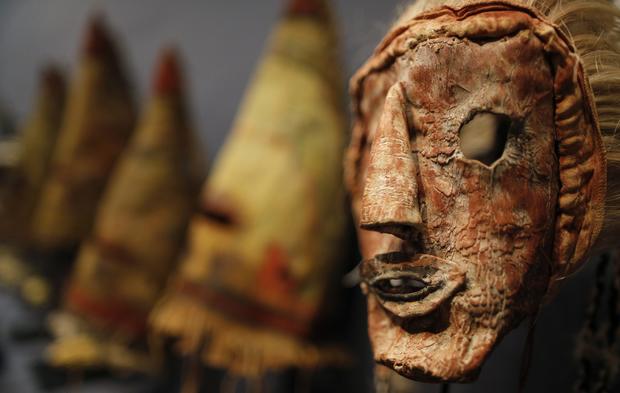Controversial auction of Hopi Native American artifacts goes forward
PARIS (Reuters) - French auctioneers sold a trove of Hopi Native American artifacts on Monday over the objections of the Arizona tribe, which considers them sacred, and a last-minute appeal from the United States.
The sale of about three dozen masks dating from the 19th and early 20th centuries followed a judge's dismissal of a legal challenge last week brought on behalf of the tribe to cancel the sale by the Eve auction house in Paris.
To the Hopi, who still live on the high desert of the Colorado Plateau in northeastern Arizona, the masks are sacred, representing messengers to the gods and the spirits of ancestors and natural forces, whether plants, animals or the sun.
"At some point this has got to stop," Pierre Servan-Schreiber, a lawyer for the Hopi, told Reuters, referring to the auction of the masks, the second this year in Paris.
"After having massacred them two centuries ago, after having put them in reservations one century ago, you now deprive them of what is at the heart of their culture," he said.
One of the most impressive is a turquoise blue "Crow Mother" mask flanked by two crow-feather wings, dating from about 1860-70. In the auction catalogue, the mask was described as "one of the biggest masterpieces of tribal art".
It sold for 100,000 euros ($136,800), above an original estimate of 60,000-80,000.
A black and red mask from 1910 decorated with the imprint of a hand sold for 29,000 euros, well above an estimate of 8,000-12,000 euros.
Over 20 sacred effigies, called Kachina dolls, from the Hopi and the neighboring Zuni tribe of New Mexico were also included in the sale, as well as items from Arizona's San Carlos Apache tribe.
The U.S. Embassy in Paris sent a letter to Eve auctioneers on Saturday asking them to postpone the sale so that the tribes would have the time to study the provenance of the objects.
At issue is whether the Hopi would be able to recover the artifacts under a 1970 UNESCO convention, which forbids the illegal sale of cultural property.
American actor Robert Redford supported the Hopi cause in April when 70 such masks were sold in Paris by the Neret-Minet & Tessier Sarrou auctioneers for 930,00
